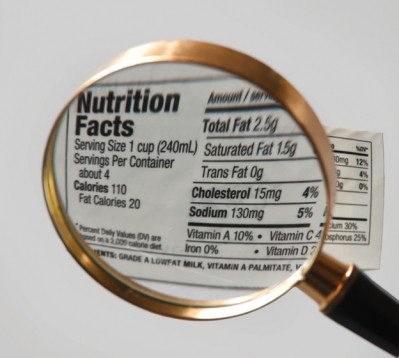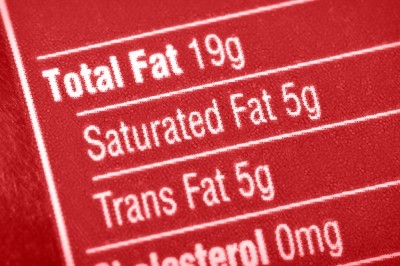Saturated fat protection mechanism suggested: Study
The study, published in Cell Metabolism, found that Angiopoietin-like protein 4 (Angptl4) plays an important role in protection from inflammation induced by high intakes of saturated fat.
The researchers said that it is becoming increasingly clear that saturated fat promotes inflammation, which can exacerbate various diseases.
“Angptl4 is a key player in the protection against the severe pro-inflammatory effects of dietary saturated fat,” concluded the researchers, led by senior author Sander Kersten, Associate Professor of Nutrition, Metabolism and Genomics at Wageningen University.
“In mice without this protein that ate a lot of saturated fat, the lymph nodes blew up to extreme levels," said Kersten. "I'd never seen anything like it before.”
Saturated fat
High intakes of dietary saturated fat have been linked to numerous chronic diseases, including cardiovascular disease and type 2 diabetes.
Kersten said the connection between saturated fat, inflammation, and chronic diseases, including cardiovascular disease and diabetes, have long been recognized, but it remained unclear why saturated fats caused harm.
Normally, dietary fats are broken down into fatty acids which are released into the circulation after passing through the lymphatic system of the intestine. Circulating fats are then broken down by an enzyme called lipoprotein lipase (LPL) to feed tissues that depend on fatty acids for fuel. But LPL is also found at high levels in macrophage immune cells.
Previous research has shown that lipoprotein lipase activity is regulated by a protein called Angiopoietin-like protein 4 (Angptl4). The new study investigated what happens in mice lacking Angptl4 when they are fed a diet high in saturated fat.
Study details
Kersten and colleagues reported that when these mice that are unable to produce Angpt14 ate saturated fat they developed severe inflammation in their abdomen, eventually leading to ascites and peritonitis.
The researchers discovered that in the absence of Angptl4, macrophages in the abdomen began to take up saturated fat, leading to a powerful inflammatory response.
When macrophages were incubated in the lab with a milky fluid containing lymph and fatty acids, Angptl4 showed reduced formation of lipid-filled foam cells, lower expression of inflammatory genes, and reduced cellular stress.
“These abnormalities are preceded by a massive acute phase response induced by saturated but not unsaturated fat or medium-chain fat, originating in mesenteric lymph nodes,” said Kersten.
“Strikingly, unsaturated fat does not cause inflammation, partly because it strongly promotes the production of Angptl4; as a result, the fat is not taken up,” she added.
In conclusion, the researchers said that Angptl4 protects against the severe pro-inflammatory effects of dietary saturated fat in mesenteric lymph nodes by inhibiting macrophage lipoprotein lipase, which thereby reduces the release of fatty acids, foam cell formation, ER stress, and initiation of a severe inflammatory response.
Damaging effect
The authors speculated that “the inability to effectively recruit this mechanism may contribute to pro-inflammatory changes related to elevated saturated fat consumption.”
They said that their findings may have implications for the approximately three percent of the human population who carry a mutation in the Angptl4 gene, while Kersten speculated that Western diets loaded in saturated fats might overwhelm the system.
In an accompanying preview article, also published in Cell Metabolism, Prof Jerrold Olefsky, from the University of California, said the study illustrates how lipotoxicity can couple with inflammation to enhance the damaging effects of high fat intake, and could help guide the development of new approaches to high lipid levels and chronic inflammation. (doi: 10.1016/j.cmet.2010.11.017).
Source: Cell Metabolism
Volume 12, Issue 6, Pages 580 - 592, doi: 10.1016/j.cmet.2010.11.002
“Angptl4 Protects against Severe Proinflammatory Effects of Saturated Fat by Inhibiting Fatty Acid Uptake into Mesenteric Lymph Node Macrophages”
Authors: L. Lichtenstein, F. Mattijssen, N.J. de Wit, et al.

















